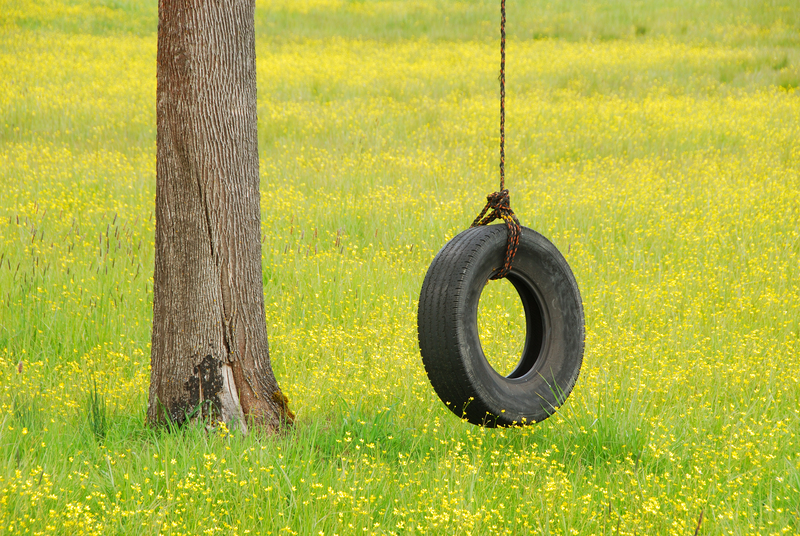Creative Ways to Upcycle Kitchen Waste for Gardening: Coffee Grounds, Eggshells, and More
Posted on 17/09/2024
Gardening is a rewarding and therapeutic activity that allows us to connect with nature and grow our own food. However, it can also produce a lot of waste, especially in the kitchen. But before you toss those coffee grounds and eggshells into the trash, consider giving them a second life in your garden. These common kitchen waste items can provide numerous benefits for your plants and help reduce your carbon footprint. In this article, we will explore creative ways to upcycle kitchen waste for gardening.
Why Upcycling Kitchen Waste is Important
The Food and Agriculture Organization of the United Nations estimates that about one-third of the world's food production is lost or wasted every year. This includes food that is left uneaten on our plates, as well as food that goes bad in our fridges or pantries. By finding creative ways to upcycle kitchen waste, we can not only reduce this amount but also give back to the environment by turning waste into valuable resources for our gardens.

1. Coffee Grounds
Coffee grounds are an excellent source of nitrogen, phosphorus, and potassium - essential nutrients for plant growth. They also act as a natural pest repellent due to their strong scent. Here are some creative ways to use coffee grounds in your garden:
- Add them directly to your compost pile: Coffee grounds are considered "green" material in composting, meaning they are rich in nitrogen and contribute to the overall balance of your compost.
- Use them as mulch: Spread a layer of coffee grounds around acid-loving plants like azaleas, blueberries, or rhododendrons. As they break down, they will provide nutrients to the soil and help maintain its acidity level.
- Make a fertilizer tea: Steep 2 cups of coffee grounds in 5 gallons of water for a few days, then strain and use the resulting liquid to water your plants. This will give them an extra boost of nutrients.
2. Eggshells
Eggshells are rich in calcium, which is vital for plant development and growth. They also contain other minerals such as magnesium, potassium, and phosphorus. Instead of throwing them out, try these creative ways to upcycle eggshells in your garden:
- Crush them and add them to your compost: Like coffee grounds, crushed eggshells can balance the carbon-to-nitrogen ratio in your compost pile.
- Use them as a natural pesticide: The sharp edges of crushed eggshells can deter slugs and snails from eating your plants.
- Add them to potting soil: As eggshells break down, they release calcium into the soil, making it more alkaline. This can be beneficial for plants that prefer a higher pH level.
3. Vegetable Scraps
Instead of throwing away vegetable scraps like carrot tops or onion peels, consider using them to create a DIY vegetable stock or broth. Simply collect your scraps in a container and freeze until you have enough to make a batch of stock. This not only reduces food waste but also adds valuable nutrients and flavor to your cooking.
Additional Tips and Takeaways
- Avoid using heavily salted or sugary food waste, as this can be harmful to plants.
- Always wash any kitchen waste before using it in your garden to avoid introducing any unwanted pests or diseases.
- Some other common kitchen waste items that can be upcycled for gardening include tea bags, banana peels, and vegetable trimmings.

The Pros and Cons of Upcycling Kitchen Waste for Gardening
Pros:
- Saves money on fertilizers and pesticides
- Reduces food waste
- Adds beneficial nutrients to the soil
- Environmentally friendly
Cons:
- Requires some extra effort and planning
- May attract unwanted pests if not used properly
- Can be messy to handle
Conclusion
Upcycling kitchen waste for gardening is a simple and effective way to reduce food waste, save money, and give back to the environment. By using items like coffee grounds, eggshells, and vegetable scraps, we can provide our plants with essential nutrients while also promoting sustainable practices in our gardens. Get creative and experiment with different ways to upcycle your kitchen waste for a healthier, more productive garden.
Latest Posts
Party Venue Recommendations in Bow





